Text
Shatterpoint: A Mace Windu Musical Chapter 6: A Duel
The sixth song, this is the final song of the intended first part of this musical, known as Doubt. In it Mace and Anakin engage in a short sparring duel. One thing to note in the original Jedi: Mace Windu comic in which much of the past three songs are based on, Mace actually spars Quinlan Vos, in this adaptation Mace actually spars Anakin, as I felt that it was good foreshadowing for what will eventually happen.
Chapter 1: Guide Us
Chapter 2: A Leader
Chapter 3: A Daughter
Chapter 4: Farewell to a Knight
Youtube Link
[The room is tense with anticipation, Yoda and Obi-Wan watch as the two look at each other. Anakin’s blue lightsaber hums as he stares at Windu’s more calm and measured expression.]
Anakin [Inner thoughts]: A test of skill, is what he seeks To measure strength, or prove I’m weak? He doubts my power, he doubts my drive, But I’ll show him, Master Windu, I’ll thrive.
He speak of control, of balance, of light, But wars aren’t won without the fight. If strength is danger, then let it be, For the galaxy needs warriors like me.
[Anakin rushes forward, his blue blade slicing through the air. Mace counters effortlessly, their sabers meeting with a brilliant flash of light.]
Mace: Reckless strikes, untempered will Your passions a fire, a Padawan still Don’t you see? Strength without purpose, power unchecked, Leaves ruin behind and lives wrecked.
[Mace parries Anakin’s next attack, his movements fluid and precise. He steps back, his voice steady as he sings.]
The Force is balance, a steady flow, Not a storm to command, not a flame to throw. The force is an ally, not a weapon to wield Control your emotions, to the dark do not yield
Anakin [inner thoughts]: He treats me like a child, like I’m in that Council room. He thinks me weak, as though I’m doomed. Does he not see what I’ve endured? The battles I’ve fought, the scars I’ve procured?
[Anakin’s strikes grow more aggressive, his movements driven by frustration. Mace remains calm, meeting each blow with ease.]
Mace (inner thoughts): His future is not clear, shrouded in haze, I see flickering images, a storm that sways. A hero, a savior, a beacon of light, Yet shadows encircle, consuming his fight.
Jedi Chorus: The Force reveals, but offers no peace, A path of hope, or chaos released. The Chosen One—so bright, so torn, Bound to a destiny both cursed and sworn.
Mace: What lies ahead, I cannot define, But the shatterpoint calls—a fragile line. In him, the galaxy’s fate may reside, Will he save the light, or let it subside?
[Mace steps forward, pressing Anakin into a defensive stance. With one fluid motion, he disarms Anakin, sending his lightsaber clattering to the floor. The room falls silent except for the hum of Mace’s blade.]
Enough, Skywalker. Strength alone won’t do. You’ve fought the battles, but what have they taught you? The Force is not yours to twist or command, It’s a trust, a guide, a steady hand.
[He extinguishes his blade, his tone softer but firm, he places his hand on Anakin’s shoulder.]
Remember this lesson, let it take root, A Jedi is more than anger or brute. Control your fire, let wisdom prevail, For without it, Skywalker, we all may fail.
[Anakin picks up his lightsaber, his frustration simmering beneath the surface. Obi-Wan steps forward, concern etched on his face.]
Mace: [Spoken] Tell me Kenobi what demands do they have?
Obi-Wan: [Spoken] They wish to meet with you.
[Mace looks to Yoda who nods, and mace agrees with a simple glance.]
Mace: [Spoken] Then meet them I shall.
#star wars#jedi#star wars legends#mace windu#shatterpoint#star wars musical#yoda#anakin skywalker#sith
1 note
·
View note
Text
Shatterpoint: A Mace Windu Musical Chapter 5: The Cracks in the Order
The fifth song in the Mace Windu musical, this one deals with Obi-Wan and Anakin filling in Mace and Yoda on the schism occurring between Jedi’s eventually culminating in a philosophical debate between Mace and Anakin. This is based on the aforementioned Jedi:Mace Windu comic. Unlike the comic though, here Obi-Wan and Anakin tell Mace about the Jedi defectors instead of Master Tholme and Quinlan Vos. Though it pains me to remove one of my favorite master/apprentice duo’s, I felt it better to include Mace and Anakin’s differences rather than include Quinlan.
Chapter 1: Guide Us
Chapter 2: A Leader
Chapter 3: A Daughter
Chapter 4: Farewell to a Knight
Youtube Link
[Inside a private chamber, Obi-Wan and Anakin discuss the recent events with those Jedi who have left the order.]
Obi-Wan: My young apprentice, you seem so distant Tell me why these troubles are insistent
Anakin: All this talk, of Jedi who stray They spoke as if there’s no price to pay Good Jedi, like Jiesel and K’kruhk too Do they not see what we must do?
Obi-Wan: My young apprentice, so full of fire, Your passion burns, but it may misfire. Though their opinions may be skewed, Their place within the Order must be renewed.
In the end, all Jedi are bound as one, United beneath the light of the sun. To doubt the Code is not betrayal, But to forsake the light—that is where we fail.
[Mace and Yoda enter a private chamber, Kenobi and Skywalker are ready to give their report. Skywalker seems hesitant. Mace glances at him. There is a recurring motif played whenever Anakin appears. A dark note played to signify the future of what will come.]
Kenobi: Masters, I come with troubling report, Our brothers and sisters now fall out of court. They refuse to fight, unsure of this war, Claiming the Republic is lost at its core.
Yoda: Lost, they feel, the way unclear, Clouded minds, but their doubts sincere. Hard to stay, the balance we keep, When shadows rise and the light grows weak.
Mace: This schism grows, a crack in our creed, A wound to heal, or a fate to concede. Sora Bulq, a friend, now walks the line, Vaapad his art, but the dark intertwines.
Anakin (interrupting): If they won’t fight, then they’ve lost their way, While we stand firm, they turn away. What good is a Code that keeps us still, While the Sith grow stronger, their will to kill?
Mace: So, sure are you, young Skywalker? To fight a war will make you stronger Remember who we are, Jedi don’t fight for pride We fight to maintain the light, to turn the tide.
Necessary, this war may be, But no easy answers will you see. Each strike we make, each life we take, Leaves scars within, the heart to break.
Anakin: Forgive me masters, for all I see Is an easy answer, as clear as can be. The Sith grow stronger while they delay, Yet we refuse to act, to end this decay.
Obi-Wan:
Enough Anakin!
[Obi-Wan pulls Windu to the side, just out of earshot from Anakin.] Good, Master Windu, Anakin means no harm, But his thoughts are restless, they raise alarm. His mind still dwells on the duel with Dooku, The weight of that moment, it lingers anew.
Mace: The chosen one he is, yet arrogant he remains I see him since his loss to Dooku, how he trains I wonder if he is as skilled as he says,
[Spoken] What say you Skywalker, shall we duel?
#star wars#jedi#star wars legends#mace windu#shatterpoint#star wars musical#yoda#anakin skywalker#obi wan kenobi#the clone wars
9 notes
·
View notes
Text
Shatterpoint: A Mace Windu Musical Concept. Chapter 4: Farewell to a Knight
The fourth song of the Mace Windu musical concept, where the Jedi gather for a funeral for a Jedi master. This song is based on the opening pages of the comic, Jedi: Mace Windu. In it the Jedi gather for a funeral for a jedi master named Vookto. The conversation between Yoda and Mace mirrors a conversation had by Shaak Ti and Plo Koon in the comic Jedi: Shaak Ti, I wanted to honor that similar sentiment that Shaak Ti echoed, as I feel it would be something Mace and Yoda would discuss.
Chapter 1: Guide Us
Chapter 2: A Leader
Chapter 3: A Daughter
Youtube Link
[On Courscant, the Jedi council and others gather round to bid farwell to a fallen comrade. He’s not the first but he is one of ever growing numbers to join the dead. Though the Jedi do not linger on death, the number of fallen still weigh heavily on many.]
Jedi Council (All Together): We gather here tonight, To honor one who shone so bright. A Jedi Knight, a servant true, A guide in the Force, his path now through.
He traveled far, the stars his guide, Saving lives with strength and pride. He trained two Padawans, steadfast and kind, A legacy of hope he leaves behind
[Spoken] Master Vookto, may the force be with you
[Mace steps forward his face sullen and grave, his voice is light as it carries the room. Full of quiet sorrow as he mourns another one of his fallen Jedi comrades.]
Mace: What is a Jedi in a time of war? Are we still the same in our core? We swore to protect, to bring peace to the stars, But now we are soldiers, wielding scars.
These are worthy questions, ones we must face, As we honor his light and his grace. We fight for peace, but at what cost? For every victory, another is lost.
And as the fallen grow, their names remain, Etched in our hearts, bound by the pain. There is no death, only the Force, This is our creed, our guiding course.
[As the rest of the Jedi disperse, master Yoda approaches Mace.]
Yoda: Much pain and death seen I, Yet, every death still aches Much sorrow in you sense I, In your nature this is.
Ask the questions you did The code questions forbid does mot Each death I sense it pains me deep Look to the stars, our choices we make
*(Spoken)* Meditate on this shall we, Right to question it is, Even when answers unknown they are. Come reports to listen, Skywalker and Kenobi here.
Mace: The reason for my return The order filled with those who burn The schism it grows, Reports of Jedi… where the darkness flows. We must act swiftly, for the cracks expand, The Order strains, like shifting sand.
2 notes
·
View notes
Text
Shatterpoint: A Mace Windu Musical. Chapter 3: A Daughter
I’m keeping up with this Mace Windu Musical, this time with the third song starring Mace Windu’s apprentice Depa Billaba, Depa was for all intents and purposes his daughter. In the novel Shatterpoint Mace refers to her as such: “Depa is more than a friend to me. She’s one of those dangerous attachments. She is the daughter I will never have. ” And I wanted to reflect that father-daughter bond between them with this song, while also foreshadowing what’s to come. Links to the previous songs:
Chapter 1: Guide Us
Chapter 2: A Leader
youtube
Chapter 4: Farewell to a Knight
A Daughter
[At the temple on Courscant, Depa Bilaba, Mace’s former apprentice, finds herself contemplating the war. She stares out into the city having just received her orders to go to Hardin Kal, Mace Windu’s homeworld].
Depa: My first memories are of a song,
And you would be there all night long.
You saved my life and gave me a home,
Taught me the Force was not just my own.
You said the light was a choice we make,
A path we walk, the bonds we take.
You gave me strength, you gave me peace,
A guiding star that would never cease.
I was your learner, your blade, your fight,
But you were my father, my source of light.
Not just a master, distant and cold,
But the warmth that shaped the story I told.
Taught me Vaapad, told me dark is a choice
Taught me to not give darkness a voice.
I was a blade with Vaapad I would fight
I would take the dark and make it light.
Yet now, as shadows grow and whisper near,
I wonder, can his teachings persevere?
Master Windu, do these lessons still hold,
In a galaxy consumed, where hearts grow cold?
[Depa Walks through the temple, the halls once filled with eager students or well known faces are now emptier or filled with those preparing for war, her heart breaks. She returns to her room.]
Jedi Chorus:
To Haruun Kal you’ll go
Stay hidden stay low
To wage a war both cruel and raw,
To the jungle, where chaos is law.
Depa:
I’ve seen the war, the blood it spills,
The lives we take, the pain it fills.
To halt the rising dark, must we transform?
And I wonder—can we weather the storm?
Jedi Chorus:
The jungle calls, its heartbeat pounds,
Through tangled vines and broken grounds.
The shadows grow, their whispers cry,
Can she stand, or will she comply?
[Depa begins to record a holo message for Mace she must leave before he returns. She walks through the halls as she speaks voice breaking slightly.]
Depa:
Master Windu, do these lessons still hold
In a galaxy consumed, where hearts grow cold?
The choices we make, will they haunt us?
Can we not step back and discuss?
If Skywalker had fallen, if Kenobi too,
Would the galaxy now stand whole and true?
Amidala’s life, a spark in the flame,
But a small price, in the end, all the same.
Is one life worth a galaxy’s fate?
Or is it the darkness we create?
We call it compassion, to save and defend,
But how many lives must break in the end?
All I ask—Master, no, not Master—
Father, I ask, that you guard me faster.
Not with your blade, nor words to bind,
But with your faith, unspoken, kind.
Believe in me if I falter or stray,
Guide me in thought, though you’re far away.
For the jungle calls, its shadows consume,
And I fear, Father, it may become my tomb.
[Depa enters Mace’s chambers where she leaves her holo message.]
#star wars#mace windu#shatterpoint#star wars musical#jedi#Still a crazy idea#crazy ideas#depa billaba#Youtube
25 notes
·
View notes
Text
Shatterpoint: A Mace Windu Musical Chapter 2 A Leader.
I think enough people enjoyed the first song I wrote up. So, I’ll keep it going until someone tells me to stop, or until someone actually talented enough to write musicals takes over.
The second song takes a little more of a personal approach with Mace, as he reflects on what the war is doing to the Jedi, and what his choices did to a lot of this being based on the opening chapters of the novel Shatterpoint.
Links:
Chapter 1: Guide Us
Chapter 3: A Daughter
Youtube Link:
A Leader
[Mace scans the remains of the battlefield, his face hard and stoic. He sees the dead and burned remains of civilization.]
Mace: How did all this come to pass? The sight of all this pain in mass. I was meant to put an end to this, In my dreams I do not miss
On that desert planet I see it clear A single stroke, and no need to fight here A single death could have stopped it all Or so I think, I know a Jedi must follow the call
[Mace’s commlink goes off, and he answers it to reveal Yoda. The peculiar green mas.]
Yoda: Much trouble I sense, Worry clouds your mind. Strong you are, but careful must you be, For strength alone the path will not find.
Mace: Master Yoda, I see the toll, On every heart, every soul. But our duty is known Hold the line fight even if alone
Yoda: Hesitate with Dooku you did Your friend he was No shame in that Compassion reward on its own.
Saved Young Skywalker in the end, The Chosen One, his path unclear. The future not always known, but You set the choice free.
No shame in doubt, no fault in care, You chose to save Kenobi and Skywalker Trust in the Force, it guides us still, Through the darkness, we will walk.
Needed on Courscant you are soon, Return, your presence needed it is.
[The Commlink shuts down and mace is left alone with his thoughts.]
Mace: Master Yoda, a leader to inspire, Beside him, even I feel like a child. He guides us through both peace and fire, Yet to me, their faith is compiled.
I’m a warrior, born to fight, Forged my own path, my own might. Through Vaapad, I let the dark in But never let it win
I take their darkness, their rage, their fear, Turn it back on them, make it disappear. I can do this, I’m strong, I’m sure, But what if their hearts cannot endure?
For my fellow Jedi, I see the cost, The struggle, the fire, the battles lost. On Depa, on Quinlan, on K’Kruhk too, And even on him—the one who’ll break through.
I sense it all—the darkness, the pain, The order we built is starting to wane. I cannot falter, I cannot doubt, I must fight on, see this through without.
But still, I wonder, deep in my core, What becomes of the Jedi amidst this war? What of the young, who know only strife? Will they ever find peace in their life?
We were keepers of peace, not soldiers of war, Now we march through battles, blood and gore. The Code guides us, but does it bend? What lies for the Jedi at this war’s end?
#Star wars#Star Wars posting#mace windu#jedi#Star Wars musical#clone wars#yoda#Shatterpoint#Someone make this happen#star wars fandom
3 notes
·
View notes
Text
Shatterpoint: A Mace Windu Musical Concept Chapter 1: Guide Us
A fun fact about me besides my love of Star Wars is that I love musicals. I have no musical talent whatsoever, but I still like the idea of writing musicals. And in the last few days I’ve had a rather silly idea of taking Revenge of the Sith and framing it as a musical, that idea eventually morphed into a musical set during the Clone Wars, but from the perspective of Mace Windu.
Mace is an often misunderstood character, especially from people who never read legends. And I thought this would be a fun idea for me to just have some fun with this. So, I got to writing an opening song for this, though as I said I’m not a songwriter by any means, but if anyone really wants me to continue let me know.
Link to song.
Chapter 2: A Leader
Chapter 3: A Daughter
Guide Us
[The musical begins, the sounds of blaster fire, vague battlefield orders heard, sounds of struggle as smoke fills the screen, intercut with lights of lightsabers and blasters. Three young padawans followed by clones enter. The padawans desperate and feeling overwhelmed sing].
Padawan #1 Come on my Jedi Can’t you see? We must hold the line For if we fall, the people die.
Padawan #2 There’s too many We’re surrounded
Padawan #3 There’s too many of them.
Padawan #1 Hold the line!
Padawan #2: We need another plan.
[Clones Fall and a Jedi does as well. A chorus begins to be heard humming. This chorus of Jedi will frequently return, they’ll act as a sort of Greek Chorus]
Jedi Chorus: So many fall So many die The young and brightest of our order In the name of peace and a republic That does not care.
Padawan #3
Retreat! We must retreat
Jedi Chorus: Untrained for war Untrained for this Meant for peace, but what is peace? Have we lost our way.
[A clone Commander appears, he runs to the eldest of the padawans.]
Clone Commander: The droids have broken our lines, Commander, what are your orders?
[The Padawan hesitates, and the clone grows more desperate.]
Clone Commander: What are your orders?!
[Suddenly a commanding voice sounds out.]
Mace Windu: Hold the line, Commander. Hold the line! (To the Padawans) Young ones, courage now—this is not the time to falter.
[The smoke clears slightly as Mace Windu strides into view, his purple lightsaber igniting with a resolute hum.]
Jedi Chorus: Master Windu, champion of the Jedi… Master Windu, where justice and courage lie… Master Windu, the shield against despair, Master Windu, a light in shadows’ lair.
Mace Windu:
Listen, young ones, the storm is here, But a Jedi stands, we do not fear. The galaxy turns in endless strife, Yet we are the shield, the blade of life.
Feel the Force, let it guide, Hold to the light, don’t run, don’t hide. Even in darkness, hope will rise, For the Jedi endure where chaos dies.
[The Padawans, emboldened by Mace’s presence, sing with renewed strength, echoing his confidence.]
Eldest Padawan: Come on, let’s do this!
Other Padawans: Master Windu, we follow— For the Republic, we fight, fight, fight!
Mace Windu (Inner Monologue): Meant to be a leader, meant to be a warrior, But they don’t see my doubts—my barrier. Could have ended this war before it began, Had my sword at the ready, but I had doubt… I’m just a man.
We must fight, change our role, But all of this war—it takes its toll. I see them fall, I see them die, My brothers, my sisters—hear their cry.
Jedi Chorus: Master Windu, guide us, lead us… Master Windu, hear us, teach us… Master Windu, show us what a Jedi can be, Master Windu, the strength of us is he.
[Mace Windu fights back, uses his lightsaber to lead and destroy battle droids as he gives orders the music grows quiet signifying that we are listening to his inner thoughts.]
Mace Windu: Jedi, follow my lead The republic will not fall, this is our creed Fight for the light, fight not for peace We fight for justice, this war will cease.
Padawans and Clones (chorus): Hold the line, hold the light, In the shadow of war, we fight, fight, fight! For justice, for hope, for the galaxy’s flame, We’ll endure, we’ll prevail, we’ll honor the name!
Master Windu, guide us, lead us… Master Windu, hear us, teach us… Master Windu, show us what a Jedi can be, Master Windu, the strength of us is he.
[The scene ends with Mace Windu standing strong, his purple lightsaber cutting through the haze, the battlefield momentarily stilled as the music fades into silence. The Jedi Chorus lingers as if carried on the wind.]
#Star Wars#star wars musical#Musicals#mace windu#jedi#Mace Windu Musical#Star Wars music#This is probably a dumb idea#Shatterpoint
74 notes
·
View notes
Text
Forgiveness and the Jedi
I think one of the things that often gets forgotten about in Star Wars, is that the Jedi way is to forgive people for their actions. No matter how bad things may have gotten the Jedi usually offer a chance for redemption.
I was re-reading Star Wars Legacy, which is a fantastic comic book which everyone interested in Star Wars legends should read. The force ghost of Kol Skywalker states perhaps one of my favorite quotes from the series.
> One of the greatest lessons of the light side, is forgiveness. Through it we find redemption.
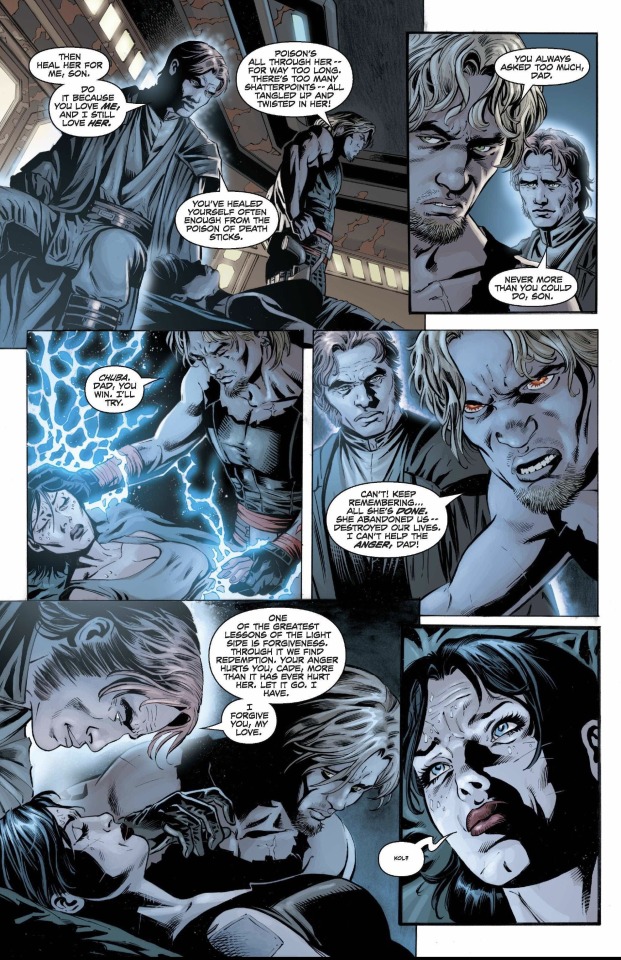
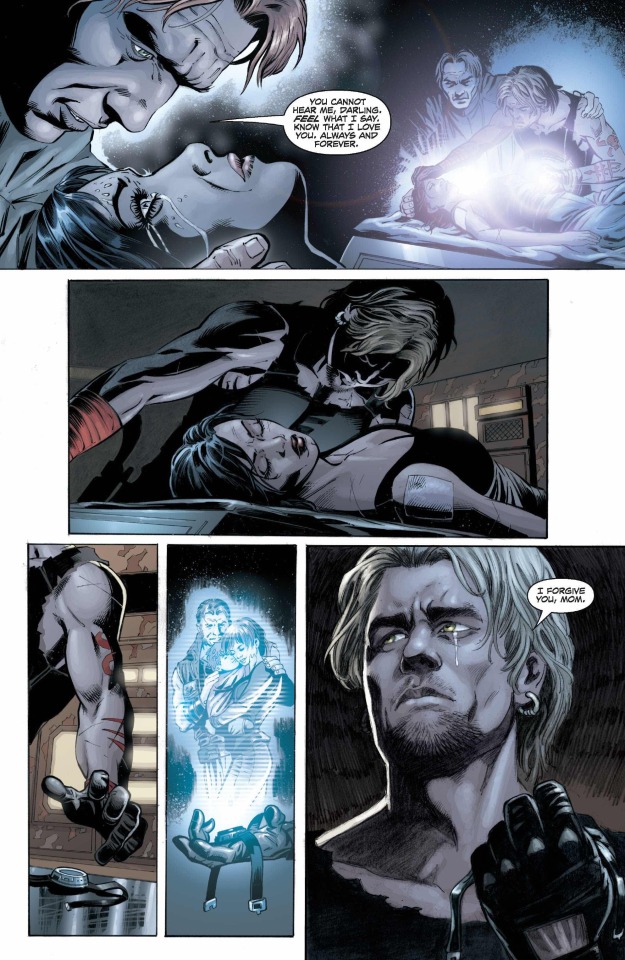
Morrigan had abandoned her husband and child, and despite all this Kol, and eventually Cade were able to forgive her. The lesson of the Jedi is to hold no grudges. To be selfless is the Jedi way.
And even in perhaps the most egregious of actions, we still see the path of redemption offered. When Yoda confronts Dooku in the novel Yoda: Dark Rendezvous, he and Dooku speak at length about the nature of the dark side and more. But I’ll highlight this piece from Yoda.
> “The Count said, “I have gone too far down the dark path ever to return.”
> “Pfeh.” Yoda snapped his fingers. “The empty universe, where is it now? Alone are you, Count, and no one your master. Each instant the universe annihilates itself, and starts again.” He poked Dooku in the chest with his stick, hard. “Choose, and start again!”
And later Yoda adds:
> “Come,” Yoda said urgently. He put his hand once more on Dooku’s arm. “Catch you, I said I would. Believe you must: more forgiveness will you find from your old Master than from the new one.”
Forgiveness separates the Jedi from the Sith, in the end the Jedi are able to see people for more than their actions. To quote Obi-Wan, “Only a Sith deals in absolutes.” Jedi are more open minded than all that.
106 notes
·
View notes
Photo

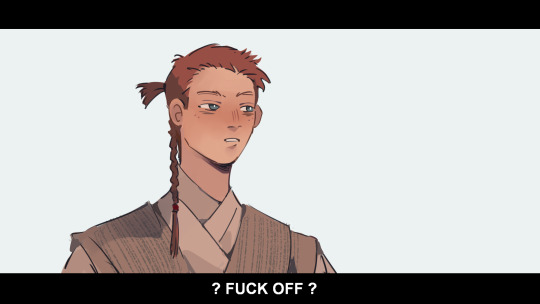

(they’re in love)
✨🌙 ART LOG -> @404ama
2K notes
·
View notes
Text
Helloooo, to all SW fans! 👋
Sooo, I have decided to make this like a… monthly? 🤔🤔 Reblog, to search for other like minded pro Jedi individuals like myself in the SW fandom, so I can find more of my little fandom corner.
So! 😁 I humbly ask those that are Pro Jedi, and do NOT blame them for their own genocide (🤦♀️🤢🥶) to reblog or like this post, so I can follow more SW fandom blogs.
I also would follow fans who are Anakin critical/anti Anakin. Although I’m more of a pro Jedi fan who still has sympathy and SO much love for Anakin’s character (🥲💔❤️), while still realizing the fault lies with himself, I also enjoy reading a lot of critical analysis on his character too.
But any Anakin fans who love him to death like me and aren’t afraid to hear criticism are welcome to like this post too! ❤️
The same goes with pro Jedi/pro clone blogs. The Jedi are my ultimate favorite blorbos, but the clones are also so very dear to me, and I love to read headcanons about them. 💕
Hopefully this isn’t a weird post. Lol. 😅🫣😂 I just thought this was a good way to expand outward into more fandom territory.
Thanks! 😜💕❤️✨
357 notes
·
View notes
Text
Populism and Demagoguery in the Star Wars Prequels
Star Wars has always been a political film, from the beginning the original trilogy was influenced by the political situation of the time, George Lucas has stated that he was influenced by the Vietnam War which was happening at the time. Lucas has stated the following regarding Palpatine in 1981 showing that Lucas was taking influence from some real-world events happening at the time.
he was a politician. Richard M. Nixon was his name. He subverted the senate and finally took over and became an imperial guy, and he was really evil. But he pretended to be a nice guy.”
Indeed, many who saw the Star Wars prequels when they were first released saw parallels and criticisms against the Bush administration at the time, Lucas himself came out to say the following about that:
"We were just funding Saddam Hussein and giving him weapons of mass destruction. We didn't think of him as an enemy at that time. We were going after Iran and using him as our surrogate, just as we were doing in Vietnam. … The parallels between what we did in Vietnam and what we're doing in Iraq now are unbelievable."
As such, one can reason that Lucas always wanted there to be a message against war, against empire building, against autocrats. But there is an underlying message that I think warrants some thinking as I feel it often gets overlooked. That is Lucas’ forewarning against populism and demagoguery as seen in the Star Wars prequels. Lucas forewarning in the prequels is about the fall of democracy, and how easy it is for people to replace a system for promises.
First of all populism itself can have multiple meanings by multiple people, and the term has been in use since at least the 19^(th) century, to avoid squabbling over terms and definitions for the purposes of this piece, I shall use it in its description from the Encyclopedia Britannica that is:
A political program or movement that champions, or claims to champion, the common person, usually by favourable contrast with a real or perceived elite or establishment
But Populism also often comes with the accompaniment and is indeed often conflated with demagoguery, following the definition from Merriam-Webster, a demagogue is a leader who makes use of popular prejudices and false claims and promises to gain power. Both tend to go together and in recent days they have been used together, either way I shall try to examine the Star War’s prequels and how they examine both.
I should also note that I am not a political scientist nor am I a scholar on the subject, so should certain inaccuracies present themselves it is through my own ignorance of the subject.
Using this definition though, we first see the elites in the form of the corporations, the Trade Federation in The Phantom Meance is the elite, a powerful force with a seat in the senate that has successfully blocked Naboo, a mid-rim planet with much less influence than perhaps some core worlds. The Republic is hopeless in ending this through public debate painting it as ineffective, the opening crawl tells us the Supreme Chancellor must secretly dispatch Jedi to hope to resolve the incident.
While the Congress of the Republic endlessly debates this alarming chain of events, the Supreme Chancellor has secretly dispatched two Jedi Knights, the guardians of peace and justice in the galaxy, to settle the conflict.
Of course, we the audience know the Sith are secretly pulling the strings to make the republic weaker, slowly weaking key institutions that could have otherwise resolved such incidents.
A populist and indeed a demagogue, will often point to the failings of institutions and systems to show that the will of the people is being ignored. Queen Amidala herself is young, and we often hear of the people of Naboo. Which leads us to our next display of Lucas’ warning against populism, Palpatine’s whispering into the ear of Padme. His influence on her is clear, especially as he rails against the Republic.
The Republic is not what it once was. The Senate is full of greedy, squabbling delegates. There is no interest in the common good. I must be frank, Your Majesty, there is little chance the Senate will act on the invasion.
Key words being used here by Palpatine such as the interest of the common good, and while Padme has faith in Valroum, Palpatine’s words quickly dissolve this trust with this as seen in the scene in the senate chamber:
Enter the bureaucrats, the true rulers of the Republic. And on the payroll of the Trade Federation, I might add. This is where Chancellor Valorum's strength will disappear … Now they will elect a new Chancellor, a strong Chancellor. One who will not let this tragedy continue.

Palpatine himself might have a point, the Republic is stagnant and rife with corruption, but the usage of half-truths, the promises of a stronger leader, and of course he is positioned as the replacement for a new chancellor himself. Lucas shows us the dangers of such leaders who will use real dangers and problems to gain power for themselves.
Of course, the problems of the Republic don’t come to an end because of Palpatine’s rise, by the time of Attack of the Clones the separatist movement has grown to include attempted murder of Padme, who’s first intent is to blame Count Dooku. Dooku himself might be seen as an example of a populist, his desire to reform the Republic was born out of a genuine place of concern, but it is easily manipulated by Palpatine evolving him into something much worse. Lucas foreshadows the dangers of political ideologies with populism by showing us how populists and demagogues might manipulate otherwise good meaning people.
Manipulation is something at the forefront of Attack of the Clones, Palpatine certainly has cultivated a sort of cult of personality that often comes with populist leaders as seen by real-life populists. Anakin shows signs of accepting the sort of populist message as well, as seen during the conversation with Padme at the lake. The two discuss democracy and when pressed on his beliefs on the subject answers:
Padme: You really don't like politicians, do you? Anakin: I like two or three, but I'm not really sure about one of them. (smiling) I don't think the system works. Padme: How would you have it work? Anakin: We need a system where the politicians sit down and discuss the problems, agree what's in the best interests of all the people, and then do it. Padme: That is exactly what we do. The trouble is that people don't wlways agree. In fact, they hardly ever do. Anakin: Then they should be made to. Padme: By whom? Who's going to make them? Anakin: I don't know. Someone. Padme: You? Anakin: Of course not me. Padme: But someone. Anakin: Someone wise. Padme: That sounds an awful lot like a dictatorship to me. Anakin: Well, if it works…
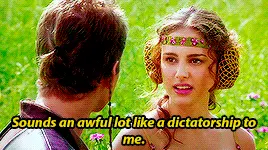
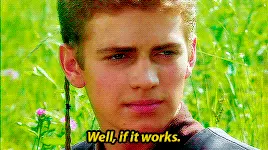
The slow acceptance that for change to be made a strong leader must emerge, that only a strong leader can make such changes, we see it with Palpatine’s manipulation of Jar Jar, in the discussion with senators regarding granting the chancellor emergency powers, Jar Jar told that someone brave like Padme would propose such measures is quick to action, his emotions played on just like many populists do. Palpatine of course accepts the powers, with the clear vocal approval of most of the senate, he has gotten this far by manipulating people into giving him even more power now.
When discussing democracy George Lucas had the following to say:
All democracies turn into dictatorships—but not by coup. The people give their democracy to a dictator, whether it's Julius Caesar or Napoleon or Adolf Hitler. Ultimately, the general population goes along with the idea …
It should come as no surprise then that the third film continues this theme of this erosion of democracy, despite the continuing granting of powers to Palpatine he is still highly respected in the republic, this is further expanded in the novelization where Matthew Stover writes:
Palpatine of Naboo, the most admired man in the galaxy whose unmatched political skills have held the Republic together. Whose personal integrity and courage prove that the Seperatist propaganda of corruption in the senate is nothing but lies … Palpatine is more than respected. He is loved … Without Palpatine, The Republic will fall.
Revenge of the Sith has painted a picture for us of how well-beloved Palpatine is that he is essentially unopposed. Such is his power that only Palpatine can decide when the emergency is over and when he needs to give up the power, leading even the Jedi to worry about the state of the democracy, Ki-Adi to state:
If he does not give up his emergency powers after the destruction of Grievous, then he should be removed from office.
Of course, this is all part of Palpatine’s plans, as Lucas wants to show us the fall of democracies, Palpatine uses the Jedi’s attempt to arrest him to monger fear, he destroys his last opposition and gives a rousing speech to the senate:
In order to ensure the security and continuing stability, the Republic will be reorganized into the first Galactic Empire, for a safe and secure society, which I assure you will last for 10,000 years. An Empire that will continue to be ruled by this august body and a sovereign ruler chosen for life. An Empire ruled by the majority, ruled by a new constitution.
Palpatine has now successfully stoked the fears of the galaxy and of the senate to grant himself more power than any other being in galactic history. Leading Padme to say the following:
So this is how liberty dies. With thunderous applause.

The people and the government have accepted the stoking of fear by a demagogue and populist.
In a conversation with George Lucas, fellow director James Cameron discussed the aforementioned line about the fall of democracies and how George Lucas had contextualized the fall of democracies in a science fiction setting. Certainly, we see Lucas’ condemnation of populist messages.
I have stated before that the prequels are about greed, as opposed to the failure of the Jedi as is often believed by some. Lucas warns us of Anakin’s greed and of the greed of politicians, and corporations. But his condemnation of populism and the embrace of it by the masses might hint at a deeper greed, a greed for safety, a want to sacrifice liberty and democracy for the sake of safety, as Palpatine was always promising.
We perhaps never see Palpatine as a breathing fire branding populist, nor a conspiracy-laden demagogue, but the signs of a sly and well-spoken politician are something that Lucas wants the audience to be wary of and that is how easily such people may exploit the weaknesses of our democracies.
#Star Wars#star wars prequels#george lucas#phantom menace#attack of the clones#revenge of the sith#politics and Star wars#The prequels aren’t about the Jedi failing#Greed#populism
7 notes
·
View notes
Text
In Defense of Ki-Adi Mundi … Again
Look at that, one of my favorite Jedi from legends is relevant again … for all the wrong reasons. But regardless I’ll take any chance I can to talk about my favorite Cerean.
With that said I’ll just say two things with regards to the acolyte and Mundi, I’ve watched two episodes and have little interest to watch anymore, canon isn’t my cup of tea, if you enjoy it good for you, Star Wars is a big enough fandom that both old EU and canon fans can enjoy their respective parts of it. And please understand that Ki-Adi Mundi of legends is not the same as canon, unfortunately people are woefully ignorant of who he was in canon.
With all that let me go ahead and repost one of my old posts from reddit where I defend the now seemingly popular Ki-Adi Mundi. Original post found here.
Introudction:
In recent days it has become quite common to bash the jedi for their perceived arrogance, hypocrisy, and coldness. Seemingly a few jedi are always quick to be singled out for their actions Mace Windu is directed plenty of ire for his role in ousting Ahsoka, as is Shaak Ti for her inaction in the clone chips, and Luminara for her response towards the death of the Martez sisters’ parents. However, I shall be focusing solely on one whom has recently been getting a lot of attention with (reddit posts like these), (articles like these), and ( videos like these).
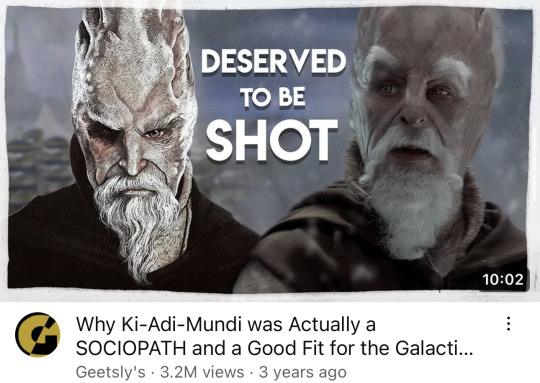
This is a horrible video, please don’t watch this.
It seems apparent to many that Ki-Adi Mundi deserved his death and that he is a prime example for the Jedi losing their way. However, I felt it necessary to attempt to put things into some perspectives. Not only because I feel people are taking things heavily out of context, but also Ki-Adi represents one of the best Jedi Masters of his era in my opinion.
Common Criticisms:
Mundi’s denial of the Sith Existence (The Phantom Menace):
One of first instances that many will bring up will be the hubris that Mundi’s quick denial that the sith might have returned as Qui-Gon reported to the council. While it is true that Mundi was perhaps just a little too quick to judge. However, one needs to consider the viewpoint of his and the rest of the council. As he states, the Sith are believed to have been extinct for a millennia, following the supposed death of Darth Bane in Darth Bane: Rule of Two. But while the Sith had believed to be extinct there were plenty of examples of Dark Jedi and other Dark Side users well into the clone wars, as exhibited in the stages before the Clone Wars such as Aurra Sing and Komari Vosa, and before The Phantom Menace as seen by Qui-Gon’s own former apprentice Xanatos.
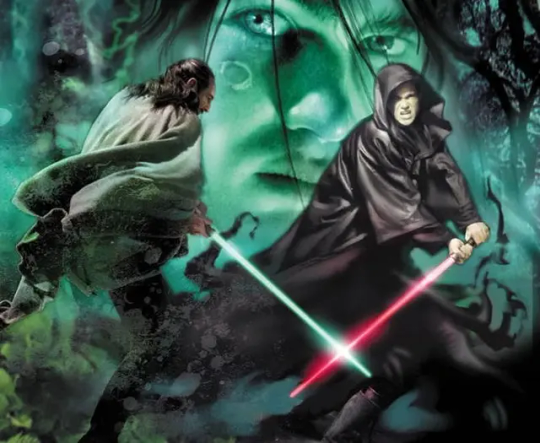
Red lightsaber, familiar in the Jedi arts, but not a Sith.
Thus, to the Jedi on the council it would have made much more sense that Qui-Gon had been attacked by a possible fallen Jedi, rather than a long believed to be dead group.
While Mundi was at times sure of himself, this is not such an example that can be used to discredit him. Rather what we can see here is an example of the arrogance of Qui-Gon to always listen to his first instinct. The Jedi Council rightfully so declares that such a matter should be looked into more closely with Mace Windu stating, “We will use all our resources to look into the matter more closely.” Of course, it looks bad in hindsight, but as viewers we have more information than the characters on the screen.
Mundi’s defense of Count Dooku (Attack of the Clones):
In Attack of the Clones following a failed assassination, Padme is quick to bring up the name of Count Dooku for whom might be responsible for the attempt on her life. This is quickly followed by the Cerean master’s words, “He’s a political idealist not a murderer.” It is backed up by the words of Mace who describes him as being a former jedi. One needs to remember the context of this. Dooku while having left the Jedi Order, did so amicably as seen by his statement when leaving the Jedi as found in Jedi VS. Sith The Essential Guide to the Force where he states:
It is my plan to return to Serenno and serve my people as a philanthropist. It is my last request as a Jedi Master that you Respect my decision, as well as my privacy. Good-bye old friends, and may the Force be with you.
Further as seen in the deleted scene Jocasta Nu states, “He disappeared for nine or ten years and reemerged as the leader of the separatist movement.” Dooku thus is thought of as only being a political leader, which would fit the description of him in the Revenge of the Sith novelization, where he is described in the common consciousness as:
The political heart of the Separatist Confederacy, Count Dooku, is known for his integrity, his principled stand against what he sees as corruption in the Senate. Though they believe he’s wrong, many respect him for the courage of his mistaken convictions.
Thus, this viewpoint by both Ki-Adi Mundi and Mace Windu is well supported in universe. They have yet to see any reason for such a quick accusation that Padme makes, instead they must stand behind the evidence at hand, that being that the attempt on her life was that of spice miners as intelligence pointed. It should be kept in context that Dooku was still seen at this time, by the Jedi at least, as a good friend who had simply become disillusioned by the Jedi and the Republic.
Ahsoka’s Trial (The Clone Wars Season Five):
Perhaps one of the most spoken criticisms against Mundi, is his role in expelling Ahsoka from the Jedi Order. With Ahsoka being a well-beloved character of the fanbase, it’s no wonder everyone would come to her defense against what most would consider an unfair treatment of a fan favorite. Yet, should one look at the evidence that was available to the character’s it is not so cut and dry. Indeed, should one look at this without any outside insight they would have come to such similar conclusions.
Indeed, the case against Ahsoka was much stronger than some might very well remember. In the second episode of the arc The Jedi Who Knew too Much the murder of Letta, the one responsible for the explosion, was caught on camera. The visual for anyone would have been obvious. Ahsoka is seen holding out her hands while Letta floats in the air visibly running out of air. This is just the first piece of damning evidence. Further there is the statement that Letta makes in plain earshot of the clone commander to Ahsoka, “I was told if I ever needed help you were the Jedi to contact,” further implementing Ahsoka into the role of mastermind of the temple bombing. In this same episode Ahsoka is let out of prison, though to anyone apart from the audience it appears that she has fled, along with reportedly killing a few clones. And then there is Ahsoka being spotted, by Anakin nonetheless, with Asajj Ventress, a known separatist and war criminal. Finally, when Ahsoka is captured by the clone and Jedi team, she is found next to more explosive nano droids. All this culminates in showing Ahsoka in the worst possible light.
Furthering the matter is the fact that this was no longer a Jedi Matter that could be investigated internally. As Admiral Tarkin explains to Anakin and Ashoka in *The Jedi Who Knew Too Much* Letta was moved because the matter was now in the hands of the military, “Clones were killed, which makes this a military matter.” A statement Anakin agrees with. And as mentioned in the same episode, Palpatine had made sure to remove the Jedi from such military matters. It further complicates the matter. And thus, one may see that the Jedi had little choice but to expel Ahsoka. Not only did all the evidence point to her. But they simply were not in a position to set up their own trial.
Further it should be noted that Mundi had very little involvement in the decision to expel Ahsoka other than simply voting, a vote that was split according to Yoda in the final episode of the arc stating, “Reached a decision the council has, though not in total agreement are we.” Indeed, Mundi himself never actually voices an accusation against Ahsoka. In To Catch a Jedi he simply asks Anakin if there was any chance to stop Ahsoka. And in The Wrong Jedi he merely asks that everyone consider that the evidence points to Ahsoka being the mastermind behind the attack, which is correct. Perhaps why everyone holds it against him is that he is the one who reads to Ahsoka what the consequences are for her being expelled from the order are. Regardless Mundi himself is not solely at fault for Ahsoka’s leaving of the order. Nor, was it outlandish for Ahsoka to be accused of said crime, as all there was strong evidence against her.
But what about the droid attack on the Wookie’s (Revenge of the Sith)
It seems a bit odd that this is constantly brought up as a point as to why the Mundi was an idiot. The Council were the military command of the republic. It was their duty to plan out the movements of the republic army, and where best to send them. While the scene first begins with Anakin’s appointment to the council, it quickly shifts to discussion about military matters, with Mundi informing the council that they do not know where General Grievous is. This prompts Obi-Wan to mention how little ships they have to spare. Naturally with how thin they are spread; Mundi asks what they will do about Kashyyk. As should be known Yoda volunteers to go to the aid of the Wookiees, stating, “Good relations with the Wookie’s I have.”
Some might see this as Mundi indirectly helping Palpatine’s plan. However, it should be noted that Obi-Wan is not exaggerating. Kashyyk really is a system that the Republic could simply not be allowed to lose. As noted in the Starwars.com encyclopedia, “Kashyyyk was of prime strategic importance, serving as a major navigational point for the entire southwestern quadrant of the galaxy.” There were also several oil refineries located on the planet which the confederacy wanted to take control of. One can also make an argument for the Humanitarian reasons to get involved. The Wookiee’s had always been loyal to the republic and were a group often targeted for slavery and hunted down. They were a marginalized group, and thus it makes sense for why Ki-Adi would want to support the Wookiee’s.
And it should be noted that Yoda himself volunteered in his desire to go and aid the Wookies, as he states he had very good relations. And it makes sense that he would want to go, and help them. The Jedi Council thus made perhaps the best decision that they could in sending not only their most experienced Jedi, but one who would have had the trust of the natives.
Common Misconceptions:
Mundi did not love or care for his family:
One of the most notable differences between Mundi and most Jedi of his time was that he had a family. As Cerean’s generally had a low birth rate, and because males were outnumbered one to twenty per *The New Essential Guide to Alien Species.*Thus, Mundi was granted a special exemption from this rule taking on one bond wife and four honor wives. Between them Mundi had seven daughters. He would spend much of his time with them as he was the appointed Jedi watchman of the sector which Cerea formed a part of. Strangely one of most common misconceptions is that Mundi somehow did not care for them.
However, in Star Wars: Prelude to Rebellion one can see quite the opposite in fact. In Part 1 we see him openly comfort his honor wife Mawin, after their daughter has run away. And he states with regard to his bond wife Shea the narration states:
”Four honor wives have given him seven daughters. He loves them all, but his heart longs for a son. He can hide his disappointment from the others. But from Shea, if she should bear him another girl? No, not from Shea. He can hide nothing from her.”
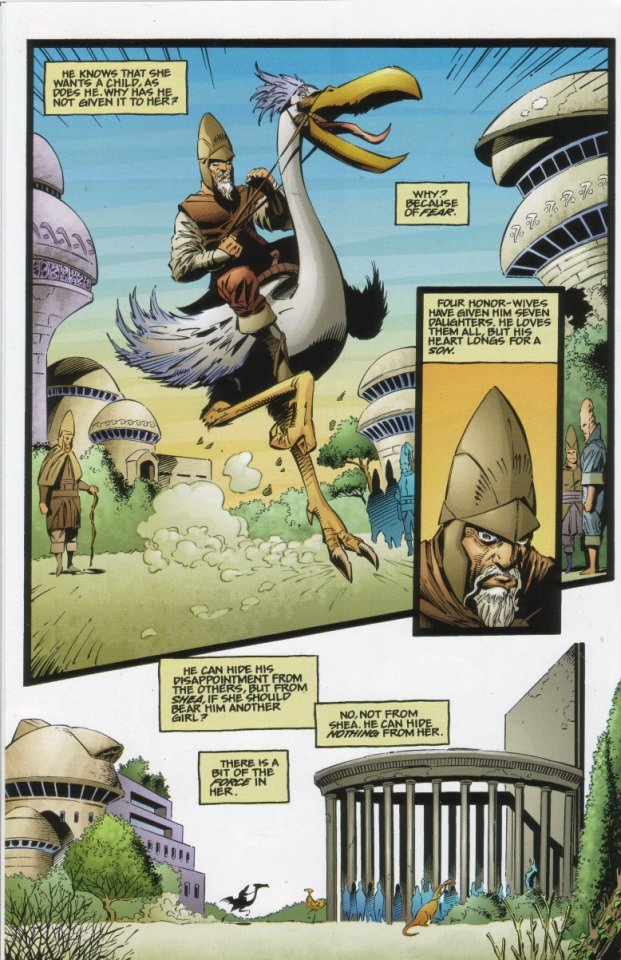
This quote shows two things. It demonstrates for us the love that Ki-Adi Mundi actually had for his family. And that he loved his bond wife Shea so much he could not bare to let her see any semblance of disappointment in his eyes. This shows the actual empathy of Mundi. And in Part 5 of the comic, we again see him demonstrating his fatherly love towards his daughter Sylvn saying, “He had not realized until she was brought so close, and then wrenched so cruelly away. How much he loved his daughter.”
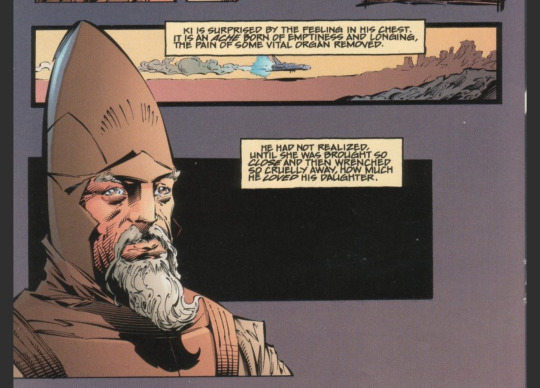
Mundi demonstrates in these early comics just how much he loves his family. And indeed, it goes contrary to the popular opinion that Mundi somehow did not care for his family.
Mundi was cold and lacked empathy.
Mundi has also been characterized as lacking empathy or feelings for others. Indeed, one of the most common examples of why Mundi is a prime example of everything bad with the Jedi of the Rise of the Empire era. Mostly I have seen people point to one scene in Star Wars: Republic 62 where following the supposed death of Obi-Wan Kenobi, Mundi relates to Anakin how he felt about the death of his family saying, “I cared for them, but tried to remain unattached.” I have seen some point to this being proof that Mundi did not care for the death of others. One can get into a debate about the Jedi and their views on death, however as noted above, Mundi absolutely cared for his family. And his advice was to tell Anakin that while death is hard one can move on from it.
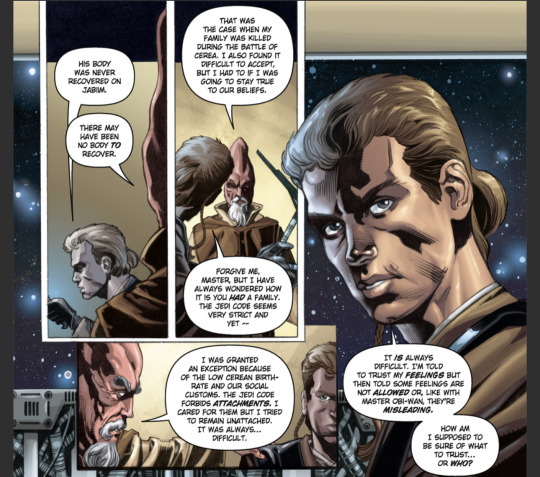
Further we have evidence of how deeply Mundi cared for the deaths of other sentient beings as seen in Star Wars Clone Wars Adventures Volume 6 we see Mundi mediating under dripping water. His exact words as to why he does this are: “It helps my meditation in these dark days. Each drop reminds me of every life that has been lost.” This shows us once more how much Mundi felt empathy for the death of every single life that had been lost.
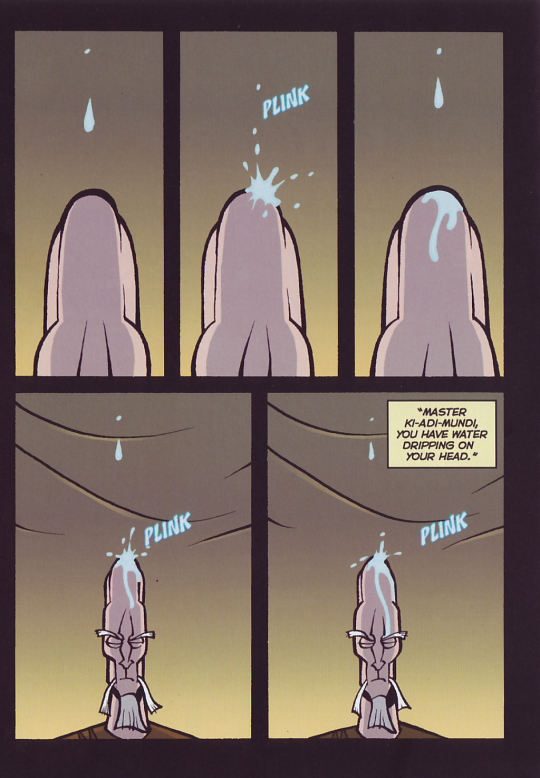
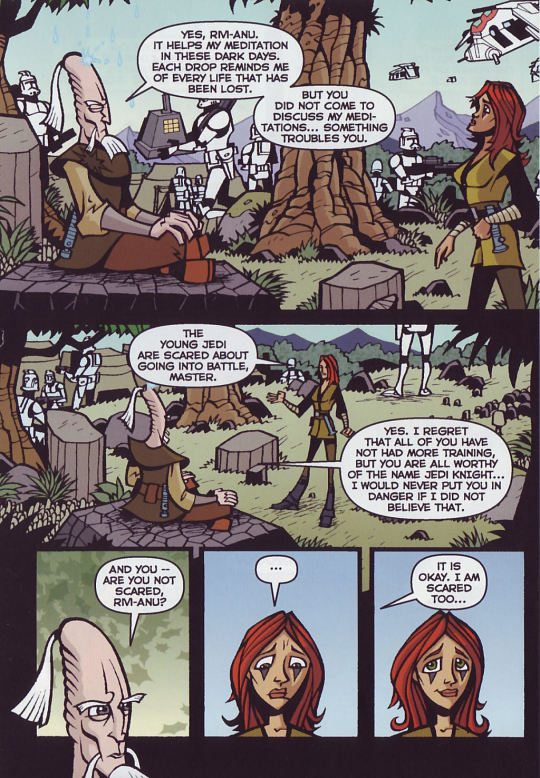
In the same comic, Mundi shows concern for the life of the young Jedi Knight Rivi-Anu who runs to try to save the lives of clones and Jedi. Mundi sees her goal of stopping a crash landing Venator from crashing knows that she is trying to save them all, following her death Mundi states, “Greater love has no being than to lay down their life for a friend. Rivi-Anu is now one with the living force. It will make me proud to one day join her.” Mundi shows once more how much the death of others matters to him when he thinks of Rivi-Anu while mediating under dripping water once matter.
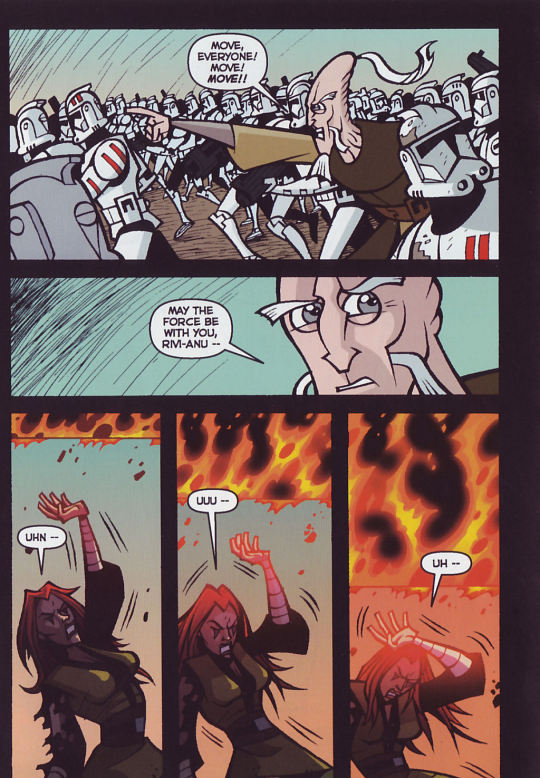
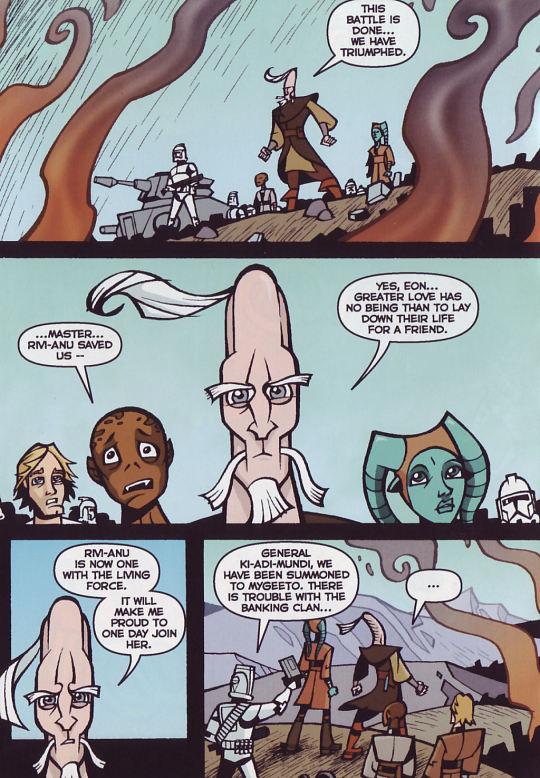
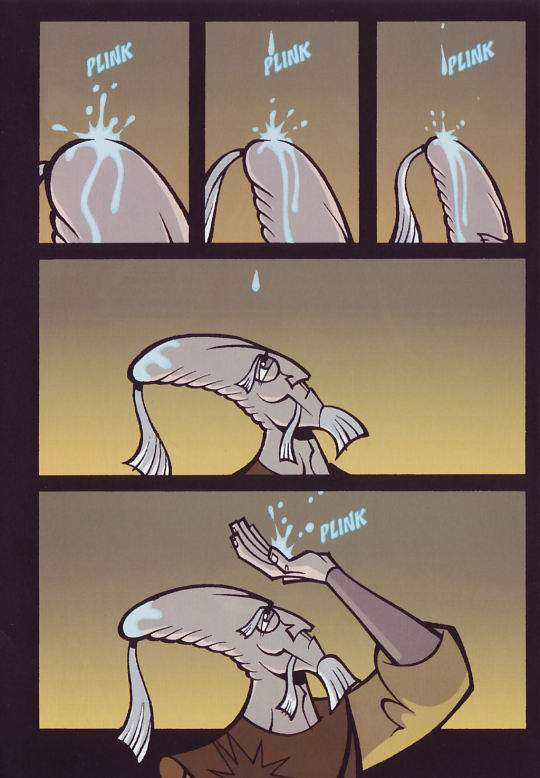
These two examples demonstrate that Mundi was far from a cold unfeeling Jedi some portray him as. While it is true Mundi did not stop to weep at the death of everyone, he undoubtedly felt every death touch his heart. His attempts at teaching Anakin the difference between mourning and holding onto these feelings is evident. And indeed we see that Mundi concentrated on the death of his fellow Jedi.
Conclusion
While it is entirely possible that one may have feelings towards Mundi, still perhaps you may feel he was incompetent or the single embodiment of everything wrong with the jedi. I would hope that this little essay does a decent job of trying to correct some of the possible misconceptions that have faced the Cerean Master. I believe it’s important to contextualize many of these criticisms. To try to make one see things from the perspective of the character, and indeed to provide direct quotes from many of his most famous stories. Ki-Adi Mundi is a character I grew up with falling in love with his stories in early comic run.
I certainly believe that Mundi was a very noble Jedi holding up the ideals of one. Growing from a young arrogant Jedi Knight. Into an introspective master. Who after losing every one of his daughters and wives still remained on the Jedi path. Who did his best to pass on wisdom to the young Jedi who would follow him. And who wanted nothing more than to preserve the republic all the way to the end. Hopefully putting some context into such claims can quell the ire driven against one of my favorite characters in Star Wars.
#star wars legends#star wars#star wars comics#george lucas#jedi#ki adi mundi#Ki-Adi Mundi deserves better#the acolyte
12 notes
·
View notes
Text
On the Jedi and Death
Another adaptation of a Reddit piece I submitted not too long ago found here.
When I wrote of the relationship between the transcendentalists and the force, I had in mind of the relationship between death and the force. And how indeed the Jedi view on death might be contrasted with that of the Sith. being perhaps one of the greatest signs of that selfishness that George a Lucas was attempting to warn us of.
Much of what I have I say has oft been repeated before, and I doubt much revelation will come from this short essay. Certainly I think there has come a great deal of misconceptions come about when some people speak of the Jedi and their views on attachment, as relates to them.
There are still, even with the added discourse towards the prequel era Jedi and their views on attachment, whom believe that the Jedi have little emotions towards others. A stark contrast when one compares the words of Mace Windu, Adi Gallia, Plo Koon to Aayla Secura with regards to the of Master Tyvooka as found in Star Wars: Republic 37
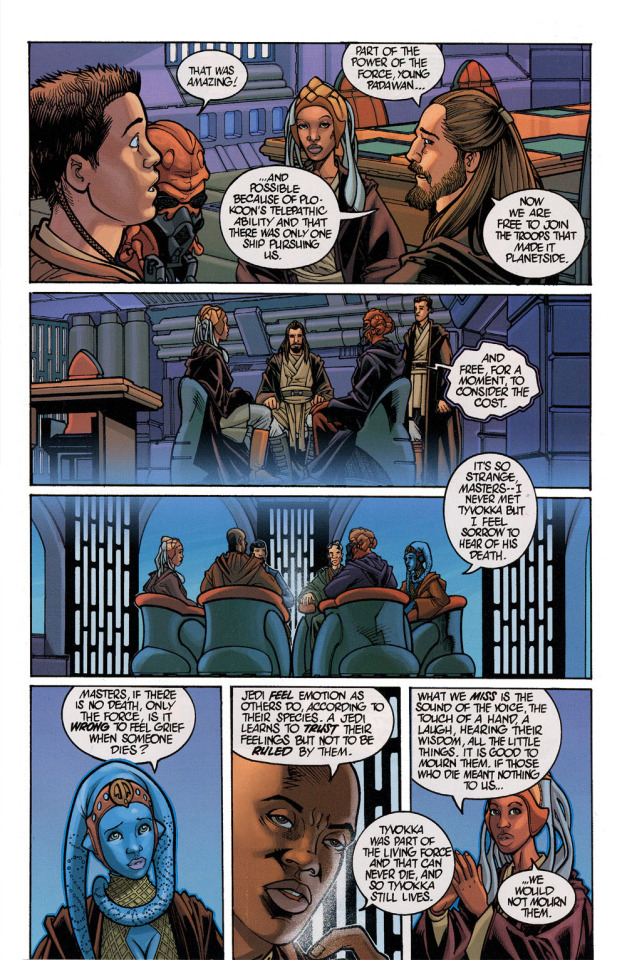
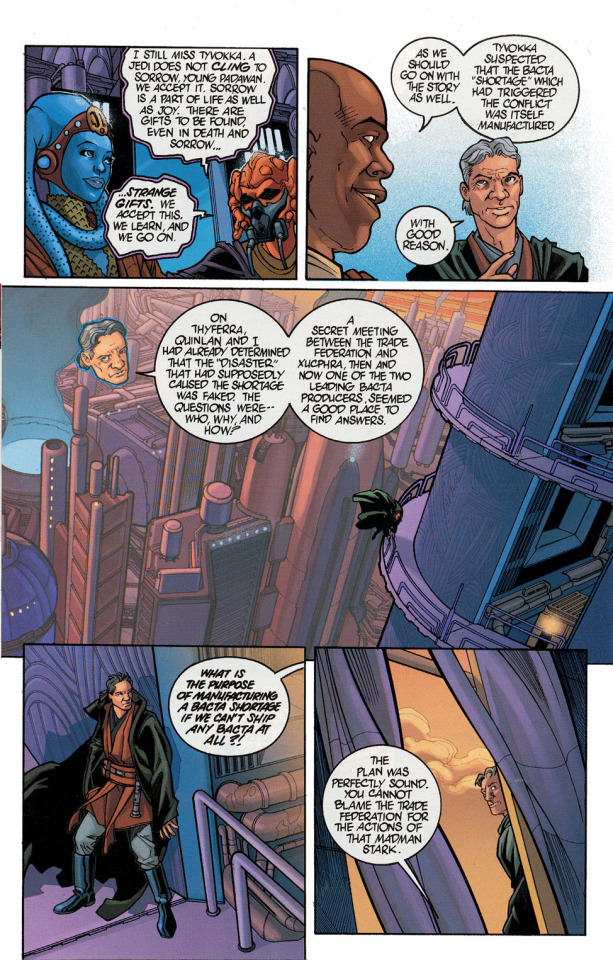
This may all at a glance seem to go against what Grandmaster Yoda said in perhaps the most famous quote in all of Star Wars with regards to as found in Revenge of the Sith,
"Death is a natural part of life, Rejoice for those around us who transform into the Force. Mourn them, do not. Miss them, do not. Attachment leads to jealousy, the shadow of greed, that is.
Indeed many a great deal of misconceptions with regards to the Jedi, and their alleged callousness towards others occur with this quote. First one must note that Yoda never shown any signs of thinking mourning another is wrong. Indeed in the novel, Yoda: Dark Rendezvous Yoda not only allowed Whie and Scout to mourn their masters, he mourned alongside them.
“Yoda told stories, and ate, and cried, and laughed: and the Padawans saw that life itself was a lightsaber in his hands; even in the face of treachery and death and hopes gone cold, he burned like a candle in the darkness. Like a star shining in the black eternity of space.”
Yet even if one we’re to not know this, I would urge one to consider the context of the quote, wherein Anakin precedes this quote by saying to Yoda that he will not let his visions come true. Hence Yoda calling attachment the shadow of greed. One might interpret this instead as Yoda reaffirming to Anakin that the Jedi accept, that is not something to fear. One might interpret his words to be about Anakin already mourning and dreading the loss of this person close to him. He is trying to hold onto someone, and as we know nothing is forever. David talks Star Wars goes rather in depth with that point of view here.
The sense of loss of something has always haunted Anakin as seen in the Revenge of the Sith Novel where a flashback takes us back to Anakin and Obi-Wan observing a dying star.
"It is the way of the universe, which is another manner of saying that it is the will of the Force," Obi-Wan had told him. "Everything dies. In time, even stars burn out. This is why Jedi form no attachments: all things pass. To hold on to something- or someone-beyond its time is to set your selfish desires against the Force. That is a path of misery, Anakin; the Jedi do not walk it."
That is the kind of fear that lives inside Anakin Skywalker: the dragon of that dead star. It is an ancient, cold dead voice within his heart that whispers all things die...
Once more it is shown that to the Jedi death is natural and not something to shy away from, as Obi-Wan says it is the path of misery. Anakin’s fear of is evident and it leaves him vulnerable to his downfall, his fear of and inability to love without attachment means Sidious is able to manipulate him.
Death should be expected and felt, as explained by Quinlan Vos to Aayla:
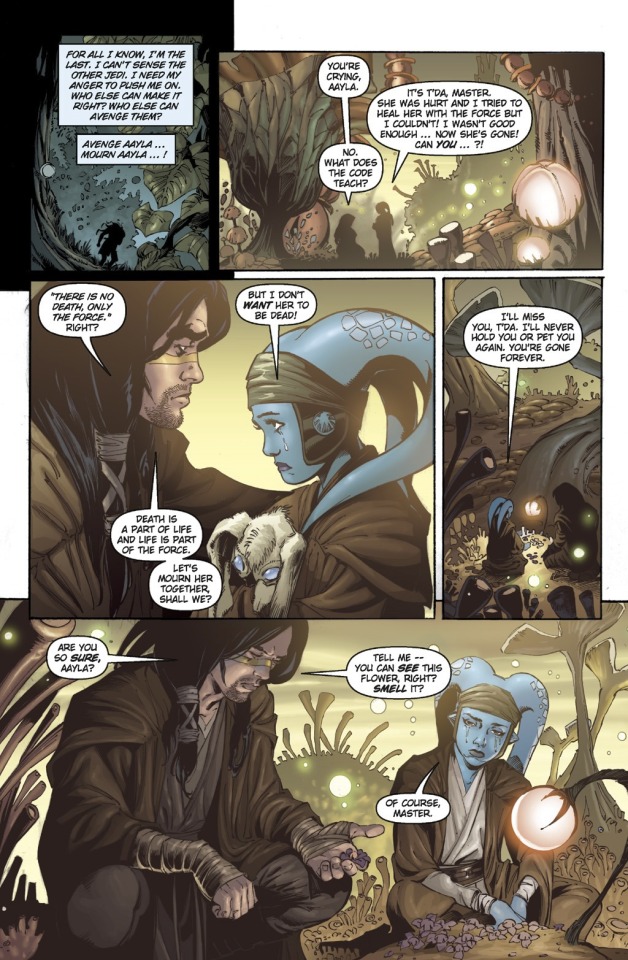
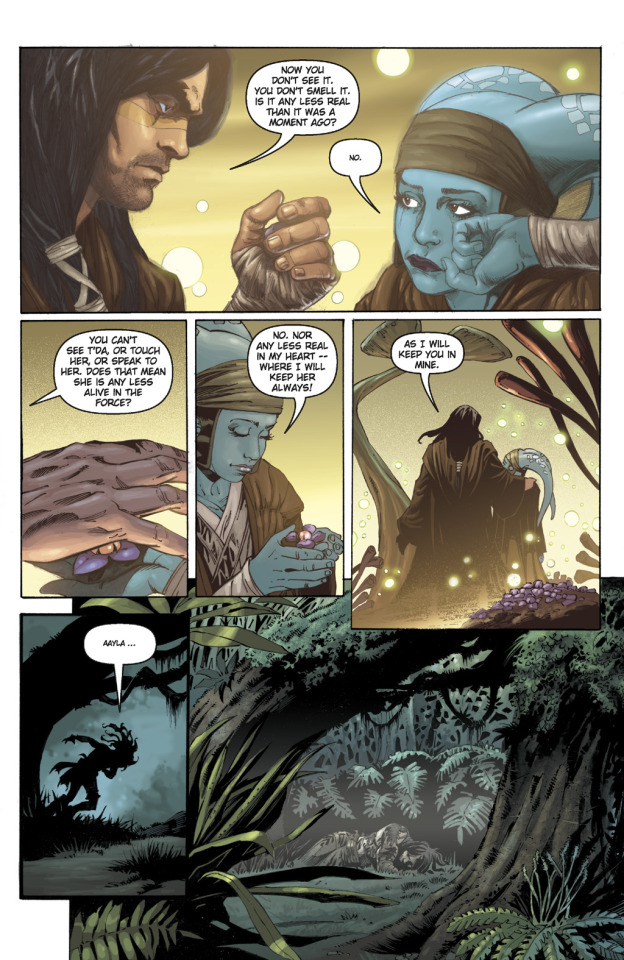
And fear of death is how we can contrast the Jedi view of against that of the Sith. No matter how powerful any Sith might have been, there is always this lingering fear of death in all of them. From the most powerful of Sith Lords such as Valkorion, Plagueis, and Sidious each of them sought an escape from death, whether it be through the use of clones, proxies, or a manipulation of midichlorians.
Indeed Star Wars is not exempt from many Sith who escaped would be, look no further than Darth Maul who stated to escape death he tapped into his hatred, or Darth Sion, a being so determined to avoid that his very body was decomposing. Maul’s own survival and quest for revenge ultimately left him mad. We can see that neither of these existences are what one might call peaceful.
Indeed the Sith quest for ultimate life has on brief occasions resulted in some Sith managing to linger on after, some Sith even staying as ghosts, yet these existences are anything but peaceful.
The irony of course is that no matter how much Sith crave eternal life, only the Jedi truly can achieve this goal as seen in a conversation between Qui-Gon and Yoda:
"The ultimate goal of the Sith, yet they can never achieve it; it comes only through the release of self, not the exaltation of self. It comes through compassion, not greed. Love is the answer to the darkness.”
Love being key to a Jedi, as George Lucas has never once stated Jedi cannot love as seen in an excerpt here about love.
“They can still love people. But they can’t possess them. They can’t own them. They can’t demand that they do things. They have to be able to accept […] their mortality, that they are going to die. And not worry about it. That the loved ones they have, everything they love is going to die and they can’t do anything about it. I mean they can protect them as you would ordinarily protect, you know, ‘Get out of the way of that car.’ Somebody charges you with a gun, you knock the gun out, but there is an inevitability to life which is and you have to accept that.”
Returning to Anakin it’s here we see a difference on how he cannot live knowing that others around him will die. That’s how a Jedi lives they see as not something to fear, but as a part of life that will eventually claim them all, hence Yoda’s words in Return of the Jedi:
“Strong am I with the Force, but not that strong. Twilight is upon me, and soon, night must fall. That is the way of things. The way of the Force”
Once more I don’t expect this post to contain much revelatory information, but I do think it’s important to have these sort of quotes and examples here for people to be able to read them and have at their disposal. The Jedi view of mortality is quite a peaceful one, and in my personal life I’ve always found it to be a sort of comfort, knowing it will come and willing to accept it is not always something we see in media. And in the end that seems to be consistent with Lucas’ desire for us to see the Jedi as unselfish.
#jedi#star wars#anakin skywalker#star wars legends#star wars comics#mace windu#yoda#quinlan vos#aayla secura#valkorion#sith#revenge of the sith#george lucas#plo koon
30 notes
·
View notes
Note
I think another message is you either adapt or you die. The Jedi were handed the golden ticket to defeat the Sith and instead of cashing it in they punched their own ticket out of existence.
I’ve come to this conclusion because Lucas says the prophecy is real, Anakin is the chosen one, and he does fulfill the prophecy. If the Jedi had rejected him he would have done it some other way because he’s meant to and the Jedi Order will still be destroyed. I just rewatch the Prequels and Anakin is not needed for anything.
if the Jedi had done more, more special treatment things could have gone better for the Jedi. In conclusion the Jedi Order had reached its evolutionary dead end because it could not adapt.
Do you think that’s a lesson in the Prequel’s? Institutional stagnation means death for the institution.
So, the idea that the Jedi are stagnant, isn’t one I’m going to immediately dismiss, because it’s something a lot of people could reach from an outsiders, perspective, but it’s one that perhaps needs more examination. And upon closer inspection one actually sees the Jedi do change.
Looking back into the EU, one sees changes from the times of the Tales of the Jedi comics, all the way to the Russan Reformation the Jedi adapt and change.
And if we look into the prequels the most notable change is that the Jedi change from their peacekeeping mission to becoming generals in the GAR. Lucas himself talks about this saying on the Jedi’s shift saying the following:
You have to think it through. Are they going to stick with their moral rules and all be killed, which makes it irrelevant, or do they help save the Republic?
I throughly recommend reading the fourth installment of The Jedi Were right: Discpline and Stagnation by u/Xepeyon over on reddit seen here. It goes a lot more in-depth about the Jedi.
10 notes
·
View notes
Text
The Point of the Prequels
I’ve seen it on more than one occasion that people attribute the message of the prequels to be that of the failure of the Jedi. To show us that the Jedi ultimately were too dogmatic, too arrogant, and too subservient to the Republic.
I do not have the time these days to write thousands of words refuting such nonsense, but I will point out that Lucas himself has attributed the Jedi as being the most moral beings in the galaxy:
They are the most moral of anybody in the galaxy. They’re monks. The Sith practice the dark side and are way of of balance. They Jedi aren’t as much out of balance because they’re the light side of the Force. - Star Wars Archives 1999-2005
One sees in the films that the Jedi are the only people out there trying to help people, they ask for nothing in return, they serve the republic because no one else has their reach, to quote Mace Windu:
Jedi do not fight for peace. That's only a slogan, and is as misleading as slogans always are. Jedi fight for civilization, because only civilization creates peace. We fight for justice because justice is the fundamental bedrock of civilization: an unjust civilization is built upon sand. It does not long survive a storm. -Mace Windu Shatterpoint
So, they have allied themselves with the largest government in the known universe, the only one with the reach to help the most amount of people.
And yes the Republic is corrupt and inefficient, and it is not perfect. But once more to quote Lucas:
The Jedi were equally determined to preserve the Republic and defeat the Sith, who they understood all too well were the masterminds of the Separatist movement. They still believed in the Republic, still deemed it a Republic worth saving. Their faith, which gave them superhuman strength in the face of mind-boggling power of the enemy, had yet to be shaken." -George Lucas Prologue to Shatterpoint
So, one may ask what is the point of the prequels? Well, the answer is greed will destroy us. The prequels show is George Lucas’ warning against greed, and not just the overt, the corporate greed of the Trade Federation, Techno Union, Banking clans, etc. the political greed of Palpatine and the senate, but also the personal greed of Anakin.
The prequels depict the Jedi as the only beings in all the galaxy that don’t ask for anything in return. Rather than the Jedi failing others, the greed of everyone else failed the Jedi.
481 notes
·
View notes
Text
Star Crossed Lovers: How Revenge of the Sith adapts Pyramus & Thisbe
*This is another adaptation of an essay I wrote on reddit found here
Back when I was in college I took a class on myths, and for my final essay of the class I was given the assignment to find and contrast an Ovid myth with another piece of media. Now, being who I am, I immediately tried to tie it to Star Wars. And I found a sort of comparison between the tragic tales of Anakin and Padme and Pyramus and Thisbe. The tragedy in their love is similar, but there are differences. And Lucas, and by extension Stover who wrote the novel, shows the influence from Ovid’s tale and manages to at the same time change the way the love story of Padme and Anakin is told. And the parallels were interesting enough for me to share my thoughts here.
Who are Pyramus and Thisbe?
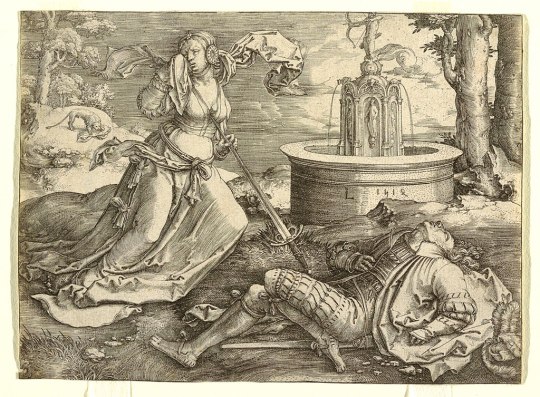
For those who have read Shakespeare’s play Romeo and Juliet, the story of Pyramus and Thisbe ought to be familiar enough. Pyramus and Thisbe are two Babylonian youths whose families live next to one another and utterly despise one another. This of course puts the two at odds with their feelings. Pyramus and Thisbe both love each other. And they manage to find some refuge by speaking to one another through a small gap in the walls, “In the common wall that ran between their houses, there was a narrow cleft made by the builders and unnoticed since. Love misses nothing!” One should note the way then that the love of Pyramus and Thisbe is portrayed by Ovid. There is a sense of the purity of love.
Unlike many of his other stories within Metamorphoses, there is no focus on grotesque violence. Rather the true tragedy of “Pyramus and Thisbe” comes from the way others prevent their love. Because their parents refuse to allow them to be together Pyramus and Thisbe resolve to run away together. They both agree to meet under a mulberry tree, but unfortunately, when Thisbe arrives, she sees a lioness and flees leaving behind her veil for Pyramus to later find bloodied by the lion’s jaws. He believes that the lioness has eaten her. The misinterpretation of symbols, as Pyramus, stumbles upon the bloodied cloak. And he says, “On this one night, two lovers come to grief! For she, far more than I, deserved long life!” Lost in grief he strikes himself down plunging his sword through himself. And in doing so effectively dooms Thisbe who arrives later to see her dying lover. She too takes her own life, but not before begging the gods for their sacrifice to be heard, “And may our wretched parents, mine and yours be moved by this petition to allow joined in the same last hour by unwavering love, to lie together in a single tomb.”. And their prayers are heard, which shows Ovid’s overreaching theme of the legacy of love. Pyramus and Thisbe’s love lives on as their ashes are shared in the same urn, and the gods change the color of the mulberry berries to red.
How This Relates to Star Wars?
So, one may see in fact the parallels here between Anakin, Padme, Pyramus, and Thisbe. The idea of two lovers who desperately want to be together. Anakin and Padme are both forbidden to be together, as Jedi are prohibited from being married, Ki-Adi Mundi aside, Like Pyramus and Thisbe both have had to hide their brief moments of love. And both resolve to run away together, as seen in the Revenge of the Sith novel. So, if the bare-bones structure is there how do they differ?
One must keep in mind that both are tragedies. But the way these tragic moments manifest come in a different way. Instead of a bloody veil in a lioness’s jaws, Anakin receives visions of the impending death of his beloved. These visions haunt Anakin. The love between the pair can hardly be said to be healthy. Anakin has feared the loss of his loved ones since the death of his mother saying in Attack of the Clones, “Well, I should be! Someday I will be. I will be the most powerful Jedi ever. I promise you. I will even learn to stop people from dying!” And in the Revenge of the Sith novel Anakin’s fears are described as a sleeping dragon that haunts him, “That is the kind of fear that lives inside Anakin Skywalker: the dragon of that dead star. It is an ancient, cold dead voice within his heart that whispers all things die …” His jealousy is also present in the novel as we see how he greets Padme and believes there is another in her life, “He took her by the shoulders now, his hands hard and irresistibly powerful. ‘There’s someone else. I can feel it in the Force! There is someone coming between us-” This is a further sign of his unhealthy love, and Lucas and Stover show this love which contrasts the tale of Pyramus and Thisbe.
Anakin is resolved to not allow Padme to die. And in a desperate search for power, he turns to a false promise, and he transforms into Darth Vader. Unlike Pyramus who literally kills himself Anakin’s death is a metaphorical one. Gone is the Jedi Knight Anakin skywalker replaced by the Sith Lord Darth Vader. And this effectively kills Padme who when she learns that all the terrible things he’s done say to him, “I don’t know you anymore. Anakin you’re breaking my heart.” And of course, Padme later dies having lost her will to live. Thus, while Anakin did not kill himself directly as did Pyramus. The death of his identity as Anakin and transformation into Darth Vader does kill Padme.
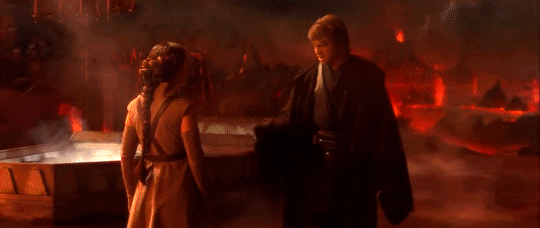
So How Are They Similar?
So, while we have seen how Lucas and Stover show the difference in the love story, and the parallels of the bloody veil and Anakin’s dreams, one might be inclined to ask how then they are similar?
Thisbe herself pleads to the gods that their love is remembered, and her desire is granted as the Gods allow for the mulberry tree’s berries to forever be stained red for the blood they shed beneath the tree. Revenge of the Sith also reveals to us that there is a legacy in the love of Padme and Anakin. The film ends by showing us the scene of Luke and Leia, the children of Anakin and Padme, being split into two separate families so that one day they too will take up the mantle. And Stover’s novel ends with the words, “The dark is generous, and it is patient, and it always wins- but in the heart of its strength lies weakness: one lone candle is enough to hold it back. Love is more than a candle. Love can ignite the stars.” And it will be so as Luke and Leia will go on to save the galaxy. And their children would go on to protect it, and their descendants would do the same. Love in both stories has a legacy that would be felt after their deaths within the Legends continuity.
Conclusion:
While I cannot say with any authority that Lucas or Stover have ever read Pyramus and Thisbe, the influence of the text is still felt in this work. And one can see how Star Wars has positioned itself into a new form of mythology that may inform us, and do its best to teach us the lessons. The simple love story changed into something more complex about the nature of love and jealousy. And that is an important lesson which can be taken away. And this entire exercise was a fun way to interact with my favorite fictional series in a more academic setting.
#star wars#ovid#jedi#anakin skywalker#padme amidala#anakin x padme#star crossed lovers#revenge of the sith#star wars legends
13 notes
·
View notes
Text
Luminara and the Dark Side
Luminara has in more recent years been getting a bad rap. I’m not all that familiar with Star Wars canon, but from what I gather it has to do with a perceived lack of affection towards others, this is a contrast to her appearance in legends where she was a rather kind woman.
Regardless today I want to talk about an excerpt from the book Medstars a book starring Barriss Offee, another character who’s backstory and personality was wildly changed from the old EU.
There seems to be a common misconception amongst some in the fanbase that the dark side is something which can easily be used, or that if one has good reason to one can slip into dark side techniques for a moment. This couldn’t be farther from the truth as Luminara states to Barriss in the books.
If you remember nothing else from this talk, Barriss, remember this: Power wants to be used. It must be kept under constant vigil, else it will seduce and corrupt you. One moment you’re swatting an annoying training toy; the next you’re paralyzing an offending being’s lungs and choking him to death. You do it because you can. It becomes an end in itself. As a Jedi, you live always on this edge. A single misstep, and you can fall to the dark side. It has happened to many, and it is always a tragedy. As with an addictive drug, it’s too easy to say, ‘I’ll do it just this once.’ That’s not how it works. The only thing that stands between you and the dark side is your own will and discipline. Give in to your anger or your fear, your jealousy or your hate, and the dark side claims you for its own. If that happens,” Master Unduli said, “you will become an enemy to all that the Jedi stand for—and an enemy of all Jedi who hold to the path of right.
Barriss moved to assume the pose. She said, “And have you ever given in to the dark side, Master?”
For a few seconds, there was silence. Then: “Yes. In a moment of weakness and pain, I did. It allowed me to survive when I might have perished otherwise, but that one taste was enough for me to realize I could never do it again. There may come a time when you experience this, Barriss. I hope not, but if ever it happens, you must recognize and resist it.”
“It will feel evil?”
Master Unduli paused in her stretch. She regarded Barriss with what seemed to be great sadness in her eyes. “Oh, no. It will feel better than anything you have ever experienced, better than you would have thought anything could feel. It will feel empowering, fulfilling, satisfying. Worst of all, it will feel right. And therein lies the real danger.”
There does seem to be some sort of disconnect with the fanbase, especially a seeming fascination with grey Jedi. However, we can quite clearly see what the dark side actually is, one cannot find themselves using any aspect of the dark side, without falling to its temptations.
The dark side is like a drug, using it leads to one wanting to use it more, no matter how noble the intentions start at first.
26 notes
·
View notes
Text
Mace Windu’s Optimism
Mace Windu is often derided by much of the fanbase, but I want to bring up a quote by his former master in the old EU, T’ra Saa.
In the Jedi: Mace Windu comic, Mace is feeling regret about his choices and how they potentially led Depa and Quinlan Vos to the dark side, and T’ra reminds him that everyone makes their own choices but also says this:
“You see things with hope in your eyes. You believe that given a true choice, people will choose the light. That is your flaw and your strength.”
Personally I think this gets to who mace really is deep down, beyond the stoic face that he has to put on as a leader of the jedi, I think Mace is a deeply kind and caring person. He wants to believe that people are inherently good, even if experience might have shown him that’s not really the case.
Which is of course sad in a way, as in the Revenge of the Sith Novel, during his duel with Sidious, Mace told Anakin to do his duty as the chosen one. Mace died believing that Anakin would do the right thing.
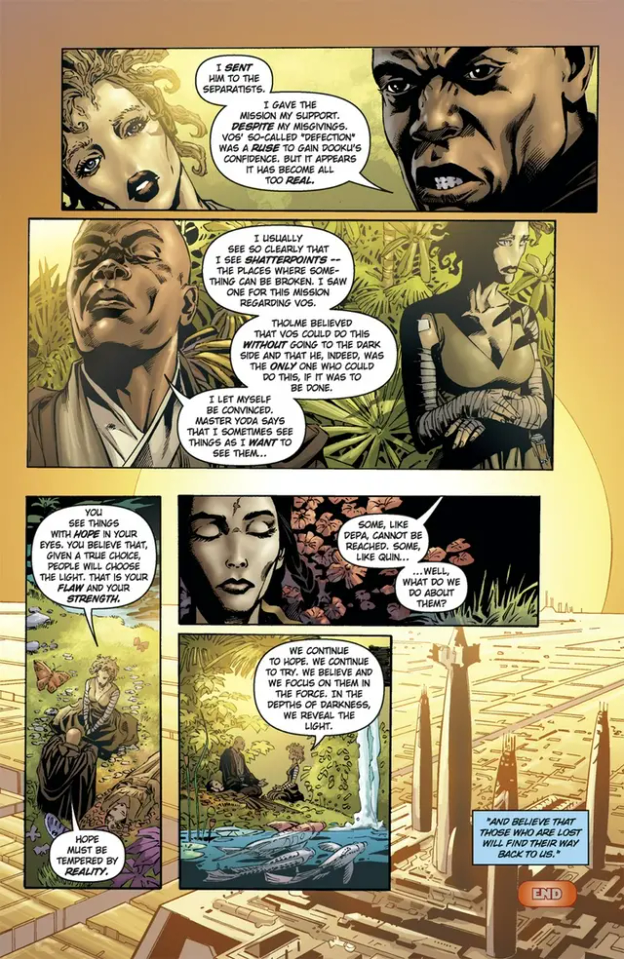
15 notes
·
View notes